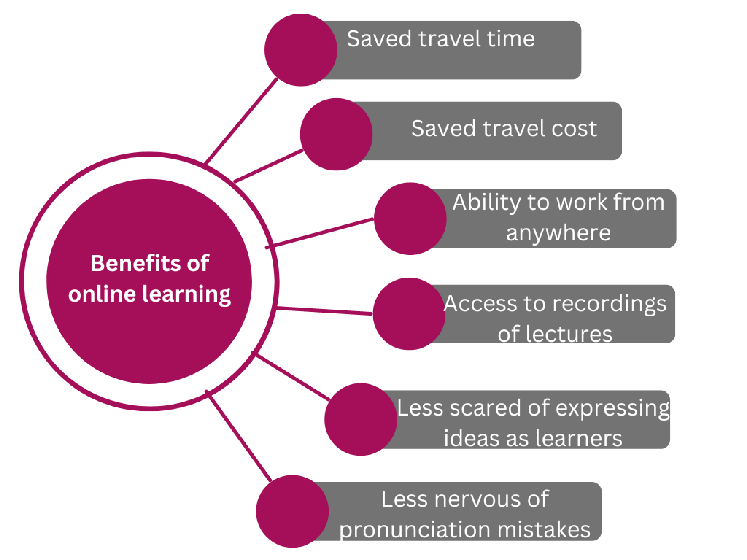Future of Distance Education in India :UGC Approved Online Learning
The future of distance education in India is transforming rapidly as digital learning reshapes the country’s education system. Once considered a secondary choice, distance learning has now emerged as a mainstream solution for millions of students, professionals, and lifelong learners. Backed by technology, government initiatives, and growing global recognition, distance education is breaking barriers of geography, cost, and accessibility. For learners across urban and rural India, it is creating new opportunities to build skills, earn degrees, and achieve career growth without leaving home.

Why Distance Education is Gaining Popularity in India
The rising demand for distance learning is not a passing trend but a response to real-world challenges and opportunities.
- Accessibility and Inclusivity
India has a diverse student population spread across villages, towns, and metros. Distance education eliminates the need for relocation, making top universities and courses accessible to learners anywhere in the country.
- Affordable Education for All
Rising tuition fees and living costs often restrict students from pursuing higher studies. Distance programs are significantly more affordable, with reduced travel and accommodation expenses—making education a reality for financially constrained families.
- Technology as a Game-Changer
From mobile apps and video lectures to digital libraries and AI-powered assessments, technology is bridging the gap between physical classrooms and online learning. Students now experience engaging, interactive sessions that rival traditional methods.
- Flexibility Beyond Boundaries
Distance education allows learners to study at their own pace and schedule. Whether it’s a working professional aiming for an MBA or a homemaker pursuing a bachelor’s degree, the flexibility empowers every type of learner.
The Future of Distance Education in India
India is at the forefront of an education revolution, and distance learning is a central pillar of this change.
| Future Trend | Description |
| Expansion of Online Degree Programs | More universities are offering UGC-approved online and distance education programs, ensuring global credibility. Expect diversification in undergraduate, postgraduate, diploma, and certificate courses. |
| Use of Advanced Learning Technologies | Tools like Artificial Intelligence (AI), Virtual Reality (VR), and Augmented Reality (AR) will revolutionize distance learning. Virtual labs, AR-based case studies, and AI-driven personalized learning will create real-world experiences. |
| Emphasis on Skill-Based Learning | With industries prioritizing practical expertise, future distance programs will focus on job-ready skills in IT, management, healthcare, finance, and more to align with employer needs. |
| Hybrid Learning Models | A blend of online and offline education will dominate. Students may attend theory classes virtually while completing labs, exams, or workshops at designated centers. |
| Lifelong Learning Culture | Distance education will expand beyond young learners. Professionals will benefit from executive programs, certifications, and micro-courses to foster continuous learning. |

Benefits of Distance Education for Learners
The future holds immense benefits for students, professionals, and society at large.
Flexibility for All Learners
Distance programs allow individuals to pursue education while managing jobs, families, or other commitments.
Wide Range of Courses
From management and IT to education, healthcare, commerce, and humanities, students can choose programs aligned with their career goals.
Recognition and Career Advancement
With programs offered by UGC-approved distance education universities, learners receive recognized degrees valid for government jobs, corporate roles, and higher education.
Eco-Friendly Education
Reduced commuting, digital study materials, and online classrooms make distance education a sustainable alternative, supporting India’s environmental goals.
Role of UGC and Government in Strengthening Distance Education
The government and regulatory bodies play a vital role in ensuring the credibility and quality of distance learning in India.
| Initiative | Focus |
| UGC & AICTE | Allow only recognized universities to offer distance education. |
| NEP 2020 | Promotes online and distance learning in higher education. |
| Digital India | Expands internet access and e-learning reach. |
| SWAYAM | Offers free and affordable online courses. |
Industries Benefiting from Distance Learning
The relevance of distance education extends beyond students, creating a skilled workforce for various industries.
- IT & Technology – Courses in software development, data science, and cybersecurity are in high demand.
- Business & Management – Distance MBA and leadership programs prepare professionals for managerial roles.
- Healthcare & Allied Sciences – Programs in public health, hospital management, and nursing meet growing healthcare needs.
- Education – Teacher training programs (B.Ed, M.Ed) enhance teaching quality nationwide.
- Finance & Commerce – Specialized programs in accounting, taxation, and banking support career growth in finance.
Challenges and the Road Ahead
To unlock its full potential, distance education must address a few challenges.
| Challenge | Solution / Focus |
| Maintaining Quality Across Institutions | Stronger monitoring and accreditation to ensure consistent academic standards. |
| Bridging the Digital Divide | Expand digital infrastructure for reliable internet access in rural areas. |
| Enhancing Student Engagement | Use gamification, group projects, and live mentorship for interactive learning. |
Future Outlook
The future of distance education in India is clear—it will be more personalized, skill-oriented, and widely accessible. With digital tools, UGC-approved universities, and government initiatives working together, distance learning is poised to empower millions of learners. It is not just about degrees; it is about preparing a generation that is adaptable, skilled, and ready for global opportunities.
The future of distance education in India represents a shift toward accessible, inclusive, and technology-driven learning. By combining affordability, flexibility, and industry relevance, it ensures that education is no longer restricted by geography or circumstance. Supported by UGC guidelines and government policies, distance learning is set to redefine the country’s educational landscape—empowering students, professionals, and lifelong learners alike to achieve their goals.
(FAQ)
Q1. Is distance education valid in India?
Yes, UGC-approved distance education degrees are valid for jobs, higher education, and exams.
Q2. What is the future of distance learning in India?
It will grow with online degrees, hybrid models, and technology-driven programs.
Q3. Can I get a government job after a distance education degree?
Yes, if the degree is from a UGC-approved institution.
Q4. Which fields are best for distance learning?
Management, IT, finance, healthcare, education, and digital marketing.
Q5. How does distance education support working professionals?
It provides flexible, self-paced, and career-focused learning.
Q6. Does NEP 2020 support distance education?
Yes, NEP 2020 promotes online, flexible, and skill-based programs.
United Correspondence College, recognized as the best guider for education, offers flexible and career
The future of distance education in India is evolving to meet the needs of modern learners and professionals. Flexible, skill-oriented, and technology-driven programs are designed to enhance knowledge, upgrade skills, and accelerate career growth. From management and IT courses to finance, healthcare, and emerging technologies, distance education combines expert guidance, practical learning, and industry-relevant training.
With mentorship from experienced faculty and the convenience of UGC-approved distance programs, learners can balance work, study, and career ambitions—unlocking global opportunities and long-term professional success.
Explore the future of learning today at – www.unitedcorrespondencecollege.com
